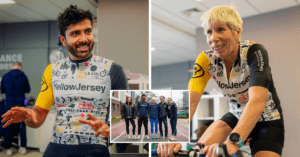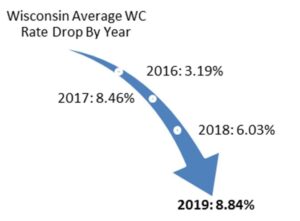The Impact of Brexit on Aspiring Pro Cyclists & Triathletes

Our regular contributor Tom Epton juggles his commitments as a part time developer with training as a semi-pro triathlete. Like many young cyclists and triathletes in the UK, he has his eyes on the European based teams which act as a proving ground for new athletes. While The Draft is a cycling blog, not a political blog, sometimes these topics overlap. Tom shares his personal experiences and opinions of how freedom of movement changes resulting from Brexit affect young British athletes.
Words by Tom Epton
I was born in 1997, and since my birth, I’ve enjoyed visa-free travel in Europe for as long as I like. This rule has afforded me, and many others like me (young, not rich, and hunting for a career in professional sport), the opportunity to dream-chase. Whether it’s training camps, racing for teams based on the continent, or anything else, the ability to travel freely in Europe was one we all took for granted. In January of 2021, this changed. Given that practically everyone was stuck at home at this time the initial impact was small, but as the world emerged from lockdown, young aspiring professional riders and triathletes began to realise they had a problem.
The rule change meant that one can only travel, visa-free, to the EU for no longer than 90 days in a 180 day period. 90 days is roughly 3 months and generally, the European road racing and triathlon season goes from March to October – that’s eight months. So, racing without a visa isn’t really an option. To obtain a visa one needs a ‘job offer’. This is fine for big teams, but the reality is most riders will not be paid at all to obtain a work visa. There’s no getting around the fact that the situation, because of Brexit, has got considerably worse for young athletes. During the referendum campaign the Prime Minister, Boris Johnson, said that Britain could remain in the single market and customs union. Membership of these institutions is coupled with freedom of movement – if he’d have kept his word then young athletes like me would have no problem.
This problem has not gone unnoticed in the sport of cycling. My ramblings are probably not the first thing you’ve read on this topic, but I’ll persist nonetheless as it’s so close to home. Tour de France winners Chris Froome and Geraint Thomas have addressed the issue signing a letter to Oliver Dowden who, at the time, was the responsible minister for this.
Oliver Dowden was probably relatively receptive to the issue given he campaigned for remain. Receptive in comparison to government ministers who seem to be burying their head in the sand on issues related to the Brexit they campaigned for and delivered, at least. The new secretary of state for the Department of Culture, Media and Sport (DCMS) is the best-selling author and former I’m a Celebrity… Get Me Out of Here contestant, Nadine Dorries. Unfortunately for riders stuck in this position, Nadine Dorries has not shown a great deal of understanding on Brexit related issues, nor any willingness to address potential downsides of Britain’s decision to withdraw from the European Union. Her appointment probably rules out short term assistance.
Ok, let’s take stock of our current situation. We used to be able to train and race in Europe as much as we liked – this is handy for aspiring professional cyclists and triathletes because there’s not many opportunities for us in the UK. We can’t do this anymore. Political support on this issue isn’t coming from the current Secretary of State of the DCMS and there’s not an election for at least a few years. Bleak. But that’s enough self-pity, what can we do about it?
There exist a number of amazing people and organisations, particularly in cycling, who help riders deal with and navigate these problems. Everything from getting them onto a team, dealing with technical border-related problems and funding their racing, is done by a committed group of individuals. These people often give up their time for free purely for the love of helping riders. If you’re an aspiring pro cyclist looking for some help start here. For information on visas specifically have a look here.
For triathletes looking for a payday, some domestic races offer a decent prize purse – Castle Series Triathlon have supported many pro athletes by putting on races that pay prize money. The Windsor Triathlon also has decent prize money, as does the British Super Series, though getting a start here is not always easy nor is it based entirely on ability. Unfortunately no ‘Dave Rayner Foundation’ type charity exists for triathletes which is a shame.
If you do manage to get onto a European team you might find that the cycling organisations are worth talking to in terms of seeking advice with technical aspects of obtaining a visa. Of course, there’s always one more option – get better and get onto a World Tour Team or Super League Triathlon. This feels easier said than done, however.
The problem is, all of the solutions presented still don’t actually do what we need – some immigration legislation that allows a rider to live in Europe for 6-9 months of the year, being paid very little and riding their bike a lot. Aspiring professional athletes are probably not that useful as immigrants – generally they’re cash poor and increase strain on medical services. However, having a star professional athlete develop an attachment to your country can be very beneficial in the long run as they become a high earner and will be a massive net contributor.
We need a solution that deals with a very small number of people – a specific ‘aspiring athlete’ visa which is valid for 12 months and would allow free travel for sporting purposes. This could be reciprocated, as many youngsters from mainland Europe come to the UK to advance their football and rugby careers. This would have the benefit of creating an affinity between future high earning individuals and the UK, or whatever EU country they end up racing in, and it could be argued that it’s beneficial for all parties. Alternatively, we could just reverse Brexit (hides)…
If you love to travel with your bikes, check out Yellow Jersey’s short term and annual bicycle insurance options, along with their travel insurance for cyclists to make sure you’re covered abroad!





